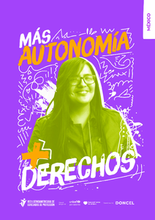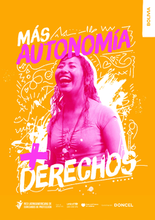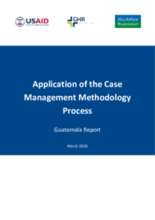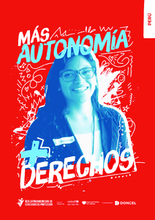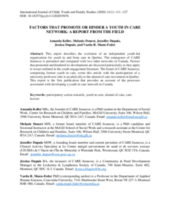Displaying 321 - 330 of 992
En este informe se presentan los resultados de la investigación llevada adelante en México que tuvo por objetivo construir información sobre las principales políticas, medidas y acciones que se desarrollan a nivel regional orientadas a acompañar el egreso de adolescentes y jóvenes del sistema de cuidados alternativos e indagar respecto de su eficacia, efectividad, sostenibilidad y adecuación a un enfoque de derechos.
The aims of this article were to identify the types and characteristics of social support for families in vulnerable situations and to analyze what elements influence families’ attitudes towards these supports.
En este informe se presentan los resultados de la investigación llevada adelante en Bolivia que tuvo por objetivo construir información sobre las principales políticas, medidas y acciones que se desarrollan a nivel regional orientadas a acompañar el egreso de adolescentes y jóvenes del sistema de cuidados alternativos e indagar respecto de su eficacia, efectividad, sostenibilidad y adecuación a un enfoque de derechos.
This document presents a summary of the process, results and lessons learned during a demonstration project in the department of Zacapa, Guatemala to implement best practices to prevent unnecessary family separation and strengthen families by identifying primary and specialized social services and bringing those services closer to the families.
En este informe se presentan los resultados de la investigación llevada adelante en Perú que tuvo por objetivo construir información sobre las principales políticas, medidas y acciones que se desarrollan a nivel regional orientadas a acompañar el egreso de adolescentes y jóvenes del sistema de cuidados alternativos e indagar respecto de su eficacia, efectividad, sostenibilidad y adecuación a un enfoque de derechos.
This guide summarizes findings from relevant literature on what helps emerging adults (including youth transitioning from foster care) succeed, describes examples of how US communities are innovating to meet those needs, and shares key takeaways from interviews with emerging adults.
Este relatório apresenta os resultados da pesquisa realizada no Brasil pelo Instituto Fazendo História com objetivo construir informações sobre as principais políticas, medidas e ações desenvolvidas no nível regional, visando acompanhar a saída de adolescentes e jovens do sistema de cuidados alternativos e indagar a sua eficácia, efetividade, sustentabilidade e adaptação a uma abordagem de direitos.
In this pilot study, sixteen youth between ages 18 and 20 participated in semi-structured interviews, support mapping, and resiliency measurements to gather the experiences of the transition from foster care.
This study draws on data from the [STUDY] and the National Student Clearinghouse to examine the roles that Education and Training Vouchers (ETVs) and campus support programs (CSPs) play in promoting college persistence for foster youth.
This report describes the evolution of an independent youth-led organization for youth in and from care in Quebec, Canada

